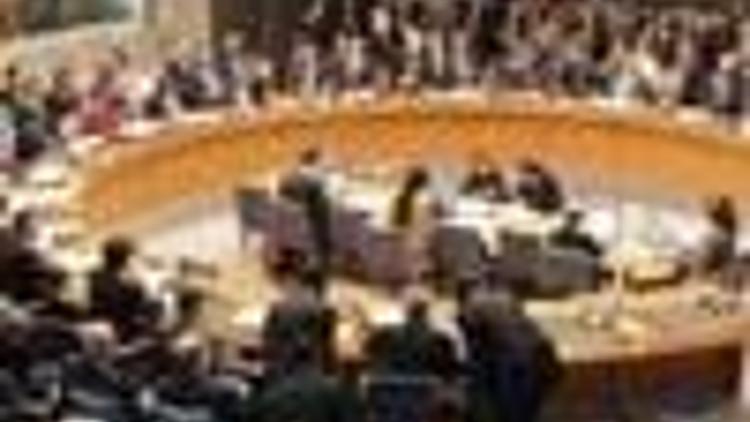North Korea scraps nuclear deal, says to make plutonium
Güncelleme Tarihi:

SEOUL - North Korea said on Tuesday it was no longer bound by an international nuclear disarmament deal and would re-start its plant that makes bomb-grade plutonium after the U.N. chastised it for launching a long-range rocket.
The U.N. Security Council on Monday unanimously condemned North Korea's launch nearly two weeks ago as contravening a U.N. ban, and demanded enforcement of existing sanctions against Pyongyang.
Markets in Seoul and Tokyo were unfazed by the latest news from North Korea seeing it as part of its usual sabre rattling.
The U.N. measures for a launch widely seen as a disguised test of a long-range missile will have little immediate impact on the North's faltering economy and the divided international response could embolden leader Kim Jong-il, analysts said.
North Korea said the six-country nuclear talks "have become useless," and it "will no longer be bound by any agreement being made at the six-party talks," its KCNA news agency quoted its Foreign Ministry as saying.
"We will actively consider building our own light-water nuclear reactor, will revive nuclear facilities and reprocess used nuclear fuel rods," the ministry said. Experts said it lacks the technology to make an advanced light-water reactor.
North Korea began taking apart its Soviet-era Yongbyon nuclear plant more than a year ago as a part of a disarmament-for-aid deal it reached with China, Japan, Russia, South Korea and the United States.
Japan urged North Korea to return to the often-stalled nuclear talks while Russia's Foreign Ministry said it regretted Pyongyang's decision.
The steps in total were aimed at taking a year to reverse but experts said the North could have its plant that separates plutonium from spent fuel rods up running again in as little as three months.
"North Korea's statements are always a mixture of bluff and real threats, but I think the threats are more real this time, and I think they'll continue for the next few months at least," said Shi Yinhong, a regional security expert at Renmin University in Beijing.
China and North Korea
Announcements like this from North Korea are part of a familiar pattern of behaviour, and as such it is not likely to be a destabilising factor for regional economies.
"Market players have come to view belligerent North Korean statements as bargaining ploys that are not to be taken at face value," said Tim Condon, an economist at ING Financial Markets in Singapore.
Analysts said China, which shares a border with North Korea and is the closest thing Pyongyang can claim as a major ally, is unlikely to use its crucial position of enforcing U.N. sanctions in order to avoid destabilising its destitute neighbour.
Chinese officials had called for restraint for what many saw as a disguised test of a long-range missile but by now joining the condemnation, Beijing has stoked uncertainty about how it intends to balance ties with Pyongyang against pressure from regional powers, which could have long-term implications.
"It means China is paying much more attention to the United States and Japan, and less to North Korea and its relations with North Korea," said Shi.
The new U.N. measures may cause Beijing to curb trade in a few items but it will keep its flow of energy, grains and other materials that prop up the North's broken down economy.
The U.S.-authored statement, agreed on Saturday by the five permanent council members and Japan, ordered a U.N. sanctions committee to begin activating financial sanctions and an arms and limited trade embargo laid down in a resolution passed two and a half years ago.
North Korean leader Kim Jong-il has basked in patriotic glory stemming from the launch in his state's propaganda, which has helped him in his return to the limelight after his suspected stroke in August raised questions about his grip on power.
Kim, 67, made his first appearance last week at a major state event when he attended a meeting of a newly elected parliament that helped cement his legacy as he rearranged power structures in order to further tighten his iron grip over Asia's only communist dynasty.
Kim may try to use the decision to step away from the nuclear deal as leverage in the six-way nuclear talks, analysts said.
He may also try to use discussions on the release of two U.S. journalists taken captive last month at the North Korea-China border and held by the North as pretext to hold direct talks with the Obama administration over the launch and nuclear wranglings, they said.

